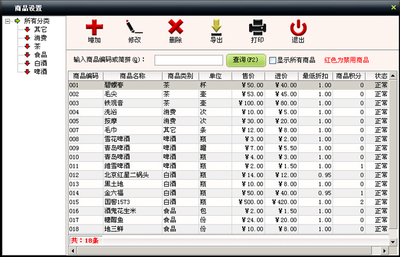(参见MSDN)
The CreateThread function creates a thread toexecute within the virtual address space of the callingprocess.
To create a thread that runs in the virtual address space ofanother process, use the CreateRemoteThread function.
HANDLE CreateThread( LPSECURITY_ATTRIBUTES lpThreadAttributes, SIZE_T dwStackSize, LPTHREAD_START_ROUTINE lpStartAddress, LPVOID lpParameter, DWORD dwCreationFlags, LPDWORD lpThreadId);
Parameters
- lpThreadAttributes
- [in] Pointer to a SECURITY_ATTRIBUTES structure thatdetermines whether the returned handle can be inherited by childprocesses. If lpThreadAttributes is NULL, the handle cannotbe inherited.
The lpSecurityDescriptor member of the structurespecifies a security descriptor for the new thread. IflpThreadAttributes is NULL, the thread gets a defaultsecurity descriptor. The ACLs in the default security descriptorfor a thread come from the primary token of the creator.
WindowsXP/2000/NT:The ACLs in thedefault security descriptor for a thread come from the primary orimpersonation token of the creator. This behavior changed withWindowsXP SP2 and WindowsServer2003.
- dwStackSize
- [in] Initial size of the stack, in bytes. The system roundsthis value to the nearest page. If this parameter is zero, the newthread uses the default size for the executable. For moreinformation, see Thread Stack Size.
- lpStartAddress
- [in] Pointer to the application-defined function to be executedby the thread and represents the starting address of the thread.For more information on the thread function, see ThreadProc.
- lpParameter
- [in] Pointer to a variable to be passed to the thread.
- dwCreationFlags
- [in] Flags that control the creation of the thread. If theCREATE_SUSPENDED flag is specified, the thread is created in asuspended state, and will not run until the ResumeThread function is called. If this value is zero,the thread runs immediately after creation.
If the STACK_SIZE_PARAM_IS_A_RESERVATION flag is specified, thedwStackSize parameter specifies the initial reserve size ofthe stack. Otherwise, dwStackSize specifies the commitsize.
Windows2000/NT and WindowsMe/98/95:TheSTACK_SIZE_PARAM_IS_A_RESERVATION flag is notsupported.
- lpThreadId
- [out] Pointer to a variable that receives the threadidentifier. If this parameter is NULL, the thread identifier is notreturned.
WindowsMe/98/95:This parameter maynot be NULL.
Return Values
If the function succeeds, the return value is a handle to thenew thread.
If the function fails, the return value is NULL. To get extendederror information, call GetLastError.
Note that CreateThread may succeed even iflpStartAddress points to data, code, or is not accessible.If the start address is invalid when the thread runs, an exceptionoccurs, and the thread terminates. Thread termination due to ainvalid start address is handled as an error exit for the thread'sprocess. This behavior is similar to the asynchronous nature ofCreateProcess, where the process is created even if itrefers to invalid or missing dynamic-link libraries (DLLs).
WindowsMe/98/95:CreateThreadsucceeds only when it is called in the context of a 32-bit program.A 32-bit DLL cannot create an additional thread when that DLL isbeing called by a 16-bit program.
二、使用实例
1.定义的全局变量
DWORD WINAPI ClientThread(LPVOIDlpParam);
struct ClientInfo
{
SOCKET sock;
SOCKADDR_IN clientAddr;////定义地址族
};2.使用方法
HANDLEhThread;
DWORD dwThread;struct ClientInfo*pClientInfo=NULL;
pClientInfo=(struct ClientInfo*)malloc(sizeof(struct ClientInfo));
hThread =CreateThread(NULL,0,ClientThread,(LPVOID)pClientInfo,0,&dwThread);
//free(pClientInfo);
if(hThread==NULL)
{
AfxMessageBox("ThreadCreat Failed!n");
return;
}CloseHandle(hThread);
3.线程函数的实现
DWORD WINAPI ClientThread(LPVOIDlpParam)
{
struct ClientInfo *pClinetInfo=(struct ClientInfo*)lpParam;
SOCKET sock= pClinetInfo->sock;
SOCKADDR_INaddrClient=pClinetInfo->clientAddr;
free(lpParam);
CTCPServerDlg*dlg=(CTCPServerDlg*)AfxGetApp()->GetMainWnd();while(1)
{
.....
Sleep(200);
}
return 0;
}
 爱华网
爱华网![[转载]CreateThread()使用实例 createthread返回值](http://img.aihuau.com/images/02111102/02064936t01fccbd93d13c92e1f.jpg)



